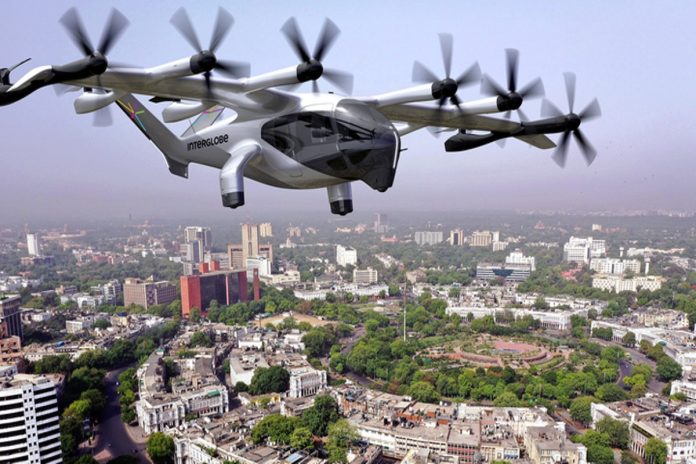India will be the largest market for electric air taxis in the world and the launch in 2026 will revolutionise urban travel, said Nikhil Goel, chief commercial officer, Archer Aviation.
California-based Archer last year entered into a memorandum of understanding (MoU) with InterGlobe Enterprises, the parent company of IndiGo, to introduce electric air taxis in India, subject to appropriate regulatory approvals and clearances.
The partnership will, in a joint venture, own and operate 200 of Archer’s ‘Midnight’ aircraft, valued at $1 billion.
Speaking at the ET World Leaders Forum, Goel emphasised the growing challenge of urban congestion in India, stating, “While cities are getting more populated, our transportation options are degrading. That burden is particularly profound right here in India, and that is what we are looking to address. I am confident that India will be not only one of, but perhaps the largest market for electric air taxis in the world.”
Electric vertical take-off and landing (eVTOL) aircraft, commonly known as air taxis, utilise electric power to hover, take off, and land vertically, much like a conventional helicopter. However, being electric, they produce fewer emissions and operate much more quietly.
Archer’s Midnight aircraft, a piloted eVTOL designed to carry four passengers, is engineered for rapid, consecutive flights with minimal charging time between journeys.
For its commercial operations, Archer is nearing the final stages of securing approvals from the Federal Aviation Administration in the United States. The company has already obtained Part 135 certification, allowing it to carry passengers in a manner similar to airlines.
Archer plans to replicate IndiGo’s successful model in India by focusing on increasing trip volume and reducing costs through economies of scale. India is set to become the third market, following the US and UAE, where Archer will introduce its air taxi services.
According to CEO Adam Goldstein, Archer aims to begin trials of its electric air taxi in India next year, with commercial operations anticipated to launch in 2026.


